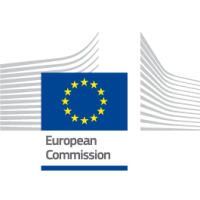
Fostering civic engagement in students
How can we empower young people to become active, informed, and responsible citizens? In an increasingly complex and connected world, teaching young people about democracy and civic responsibility is more important than ever. Educators have the power to inspire the next generation to play a real part in their communities and the wider world, but they need the right support and resources to do so.
Description
This short course is for educators in Europe from all levels and subjects who want to gain fresh knowledge, practical strategies, and ready-to-use tools to encourage civic engagement in their students. Based on core European values - such as democracy, human rights, inclusion, equality, and the rule of law - the course helps you understand these principles and apply them in your educational settings.
You will engage deeply with essential topics including the legal and institutional foundations of EU values, what European citizenship really means and contemporary challenges to democratic participation.
The course combines theory and practical methods you can use straight away in the classroom. You will learn how to create inclusive and participatory learning environments that promote critical thinking, open dialogue, and active citizenship. Interactive tasks, case studies, and reflection prompts ensure that you leave with clear ideas and renewed confidence to help your students become engaged and committed members of society.
Learning objectives
- Understand the legal and institutional foundations of EU values and civic engagement, by examining key EU treaties, legal frameworks, and the concept of European citizenship through case studies, interactive discussions, and guided analysis.
- Design and integrate classroom activities that embed civic education and EU values across different teaching contexts and subjects through cross-curricular approaches, practical exercises and case analyses that demonstrate how to apply theory to practice.
- Reflect on strategies to foster student participation and improve on your role as an educator in promoting democratic values and inclusive learning environments through the peer-assessment process, a final project and reflection prompts that encourage you to critically assess your teaching approach.
Methodology & assessment
Certification details
Upon successful completion of the course, a digital course certificate is awarded. The certificate shows the name of the learner and key course details such as the estimated learning hours, the learning objectives, and a link to the course homepage.
Additional information
-
Language:English
-
Target audience ISCED:Primary education (ISCED 1)Lower secondary education (ISCED 2)Upper secondary education (ISCED 3)
-
Target audience type:TeacherHead Teacher / PrincipalTeacher Educator
-
Learning time:5-10 hours
Past sessions
More courses by this organiser




